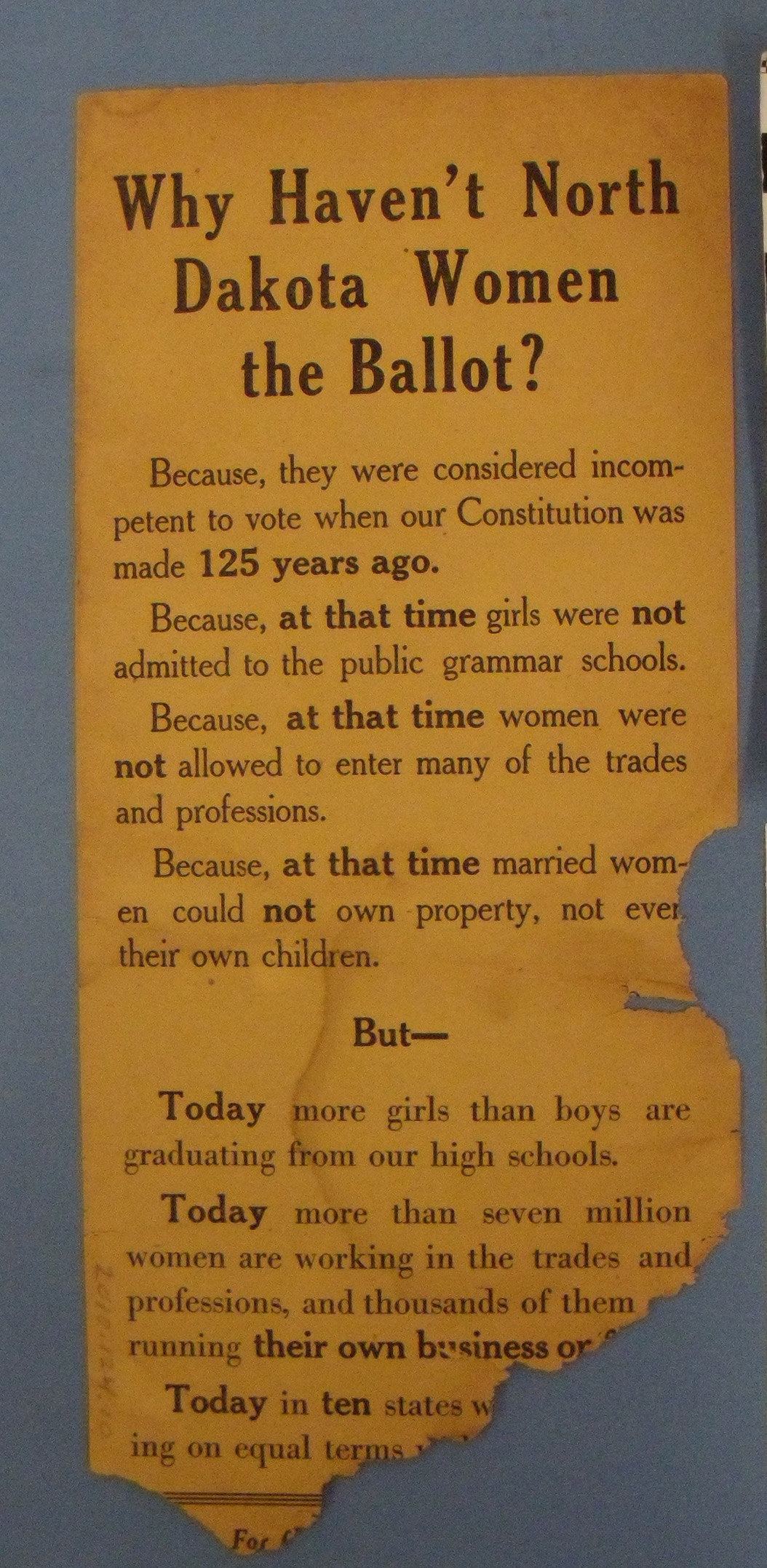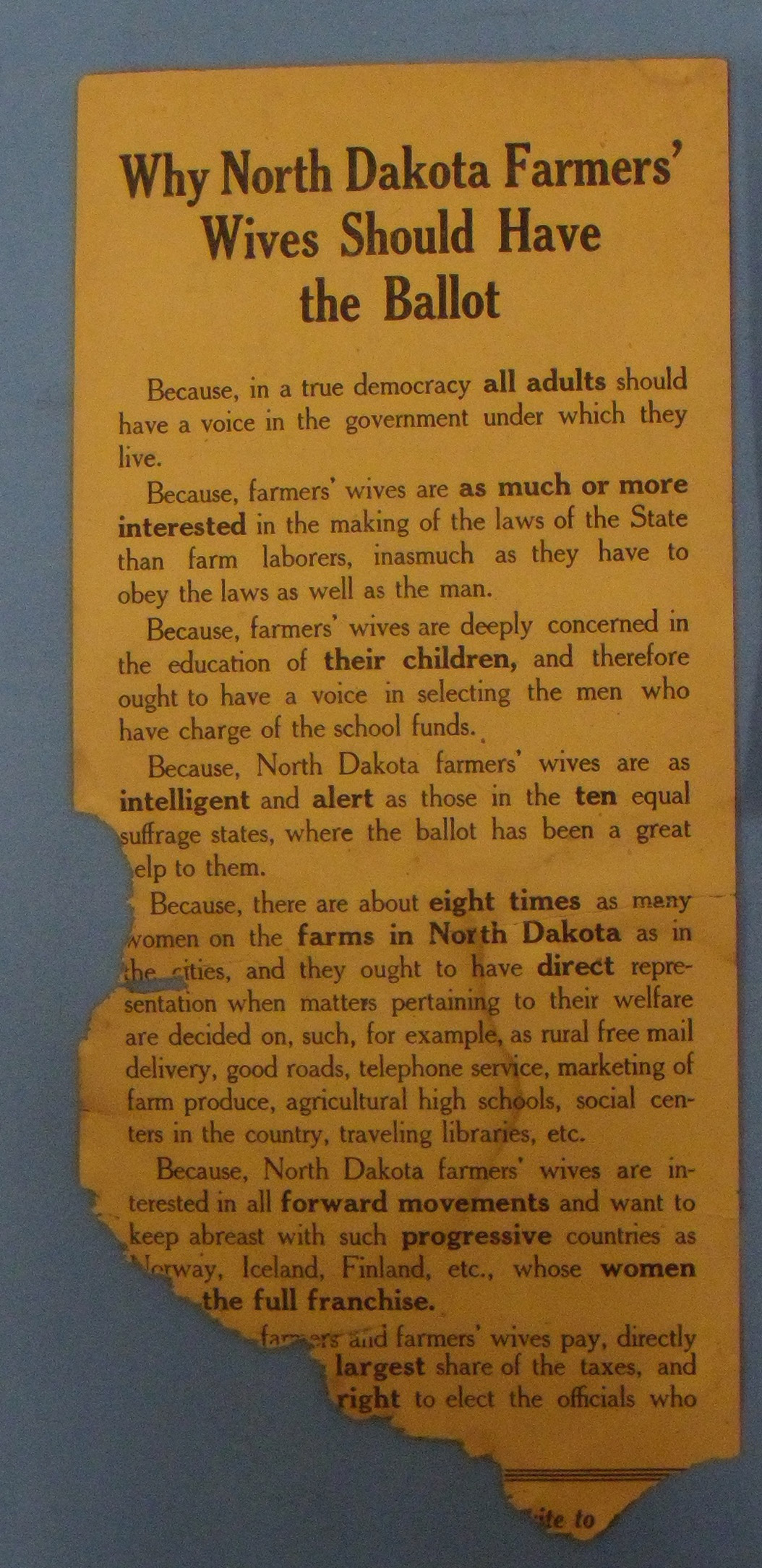A great variety of arguments fed the debate over woman suffrage for decades. Some arguments presented strong ideas; others were simply silly. In politics, the vote is the important part of any debate, so if someone used a silly argument that swayed people to his direction, then it didn’t matter if the argument had no substance.
Here are some of the arguments for and against woman suffrage. Some of these arguments were presented in the national debate. Other arguments were brought up in North Dakota. If the argument is associated with a particular person or organization, that name is presented.
For Woman Suffrage.
Women voters would bring moral concerns such as child labor laws and better housing conditions to politics.
“All men are created equal” means all human beings are created equal.
The women’s auxiliary of the Nonpartisan League argued that voting made women better mothers who could better guide their children. Women should vote in the interests of their homes and their schools.
A woman who could not discuss politics with her husband risked having him go to “someone else” for political discussions. The “someone else” was a reference to another woman who was more interested in political questions. This was an argument presented by the Nonpartisan League to encourage rural women to vote.
Women who could not vote would remain “slaves” to their husbands.
Rural women should vote. If they did not, city women would vote and their voices would be registered with their votes and rural women would remain silent. (See Document 10)
Women supported the war effort of the United States and its allies in “The Great War,” World War I. They worked for the Red Cross, conserved foods at home, and served as nurses and ambulance drivers at the war front. They have earned full citizenship rights.
Against Woman Suffrage
In 1901, Representative H. E. Lavayea of Grand Forks introduced a bill to rescind school suffrage for women. He apparently believed that women should not vote at all.
Women voters would strengthen the prohibition laws of North Dakota. Those who opposed prohibition opposed woman suffrage. This argument was raised by the railroads, liquor manufacturers, and German American residents of North Dakota. The “stalwart” Republicans led by Alexander McKenzie held this position.
Woman suffrage might lead to regulation or even prohibition of cigarettes.
Woman suffrage might contribute to the extension of suffrage to American Indians.
Woman suffrage might mean that businesses would face new laws concerning working conditions.
Political spaces such as the polls were considered masculine and corrupt. It was no place for women. Voting would de-feminize women.
Women who voted would not be at home taking care of their husbands and children.
Women were not asking for the vote, and many women actually opposed woman suffrage. The Larimore Pioneer newspaper polled 82 women in 1913. Seventy-one women opposed suffrage.
Women would vote as their husbands told them to, so no need to add their vote.
Women’s political position and interests were “covered” by their husbands’ political interests. This is a legal concept called “coverture.” Until the 20th century, women could not sign contracts or otherwise engage in business without the consent of their husband or male guardian.






